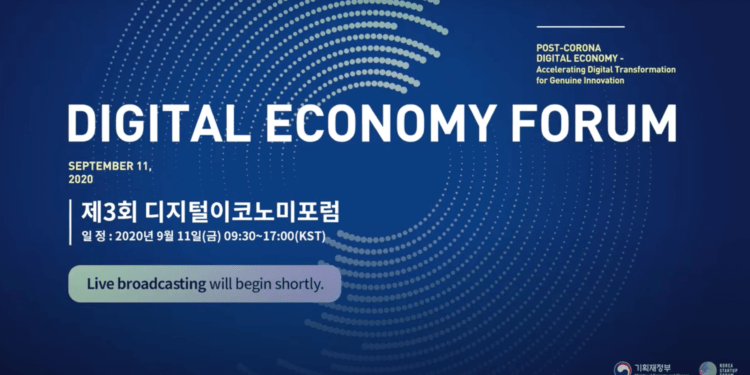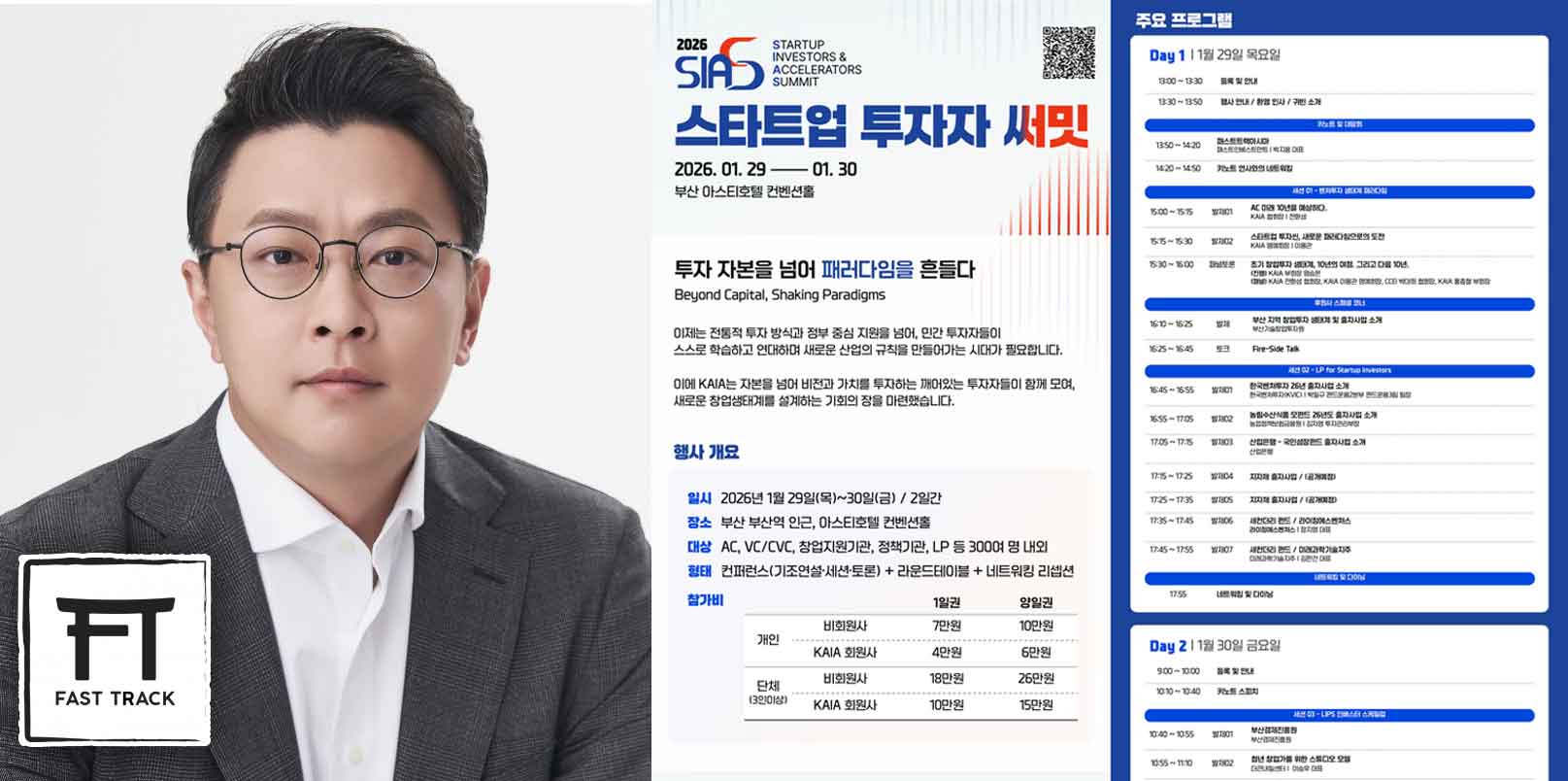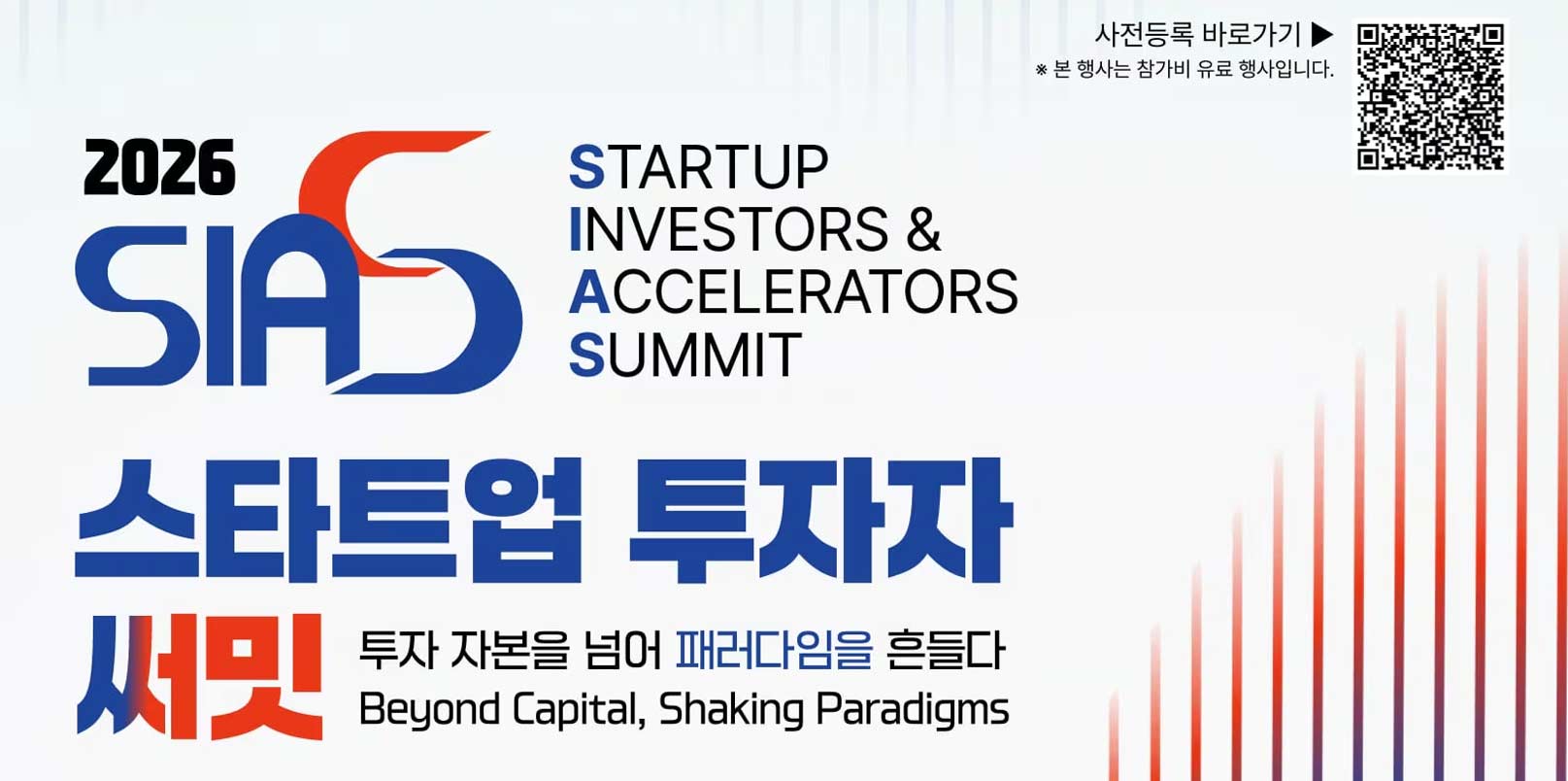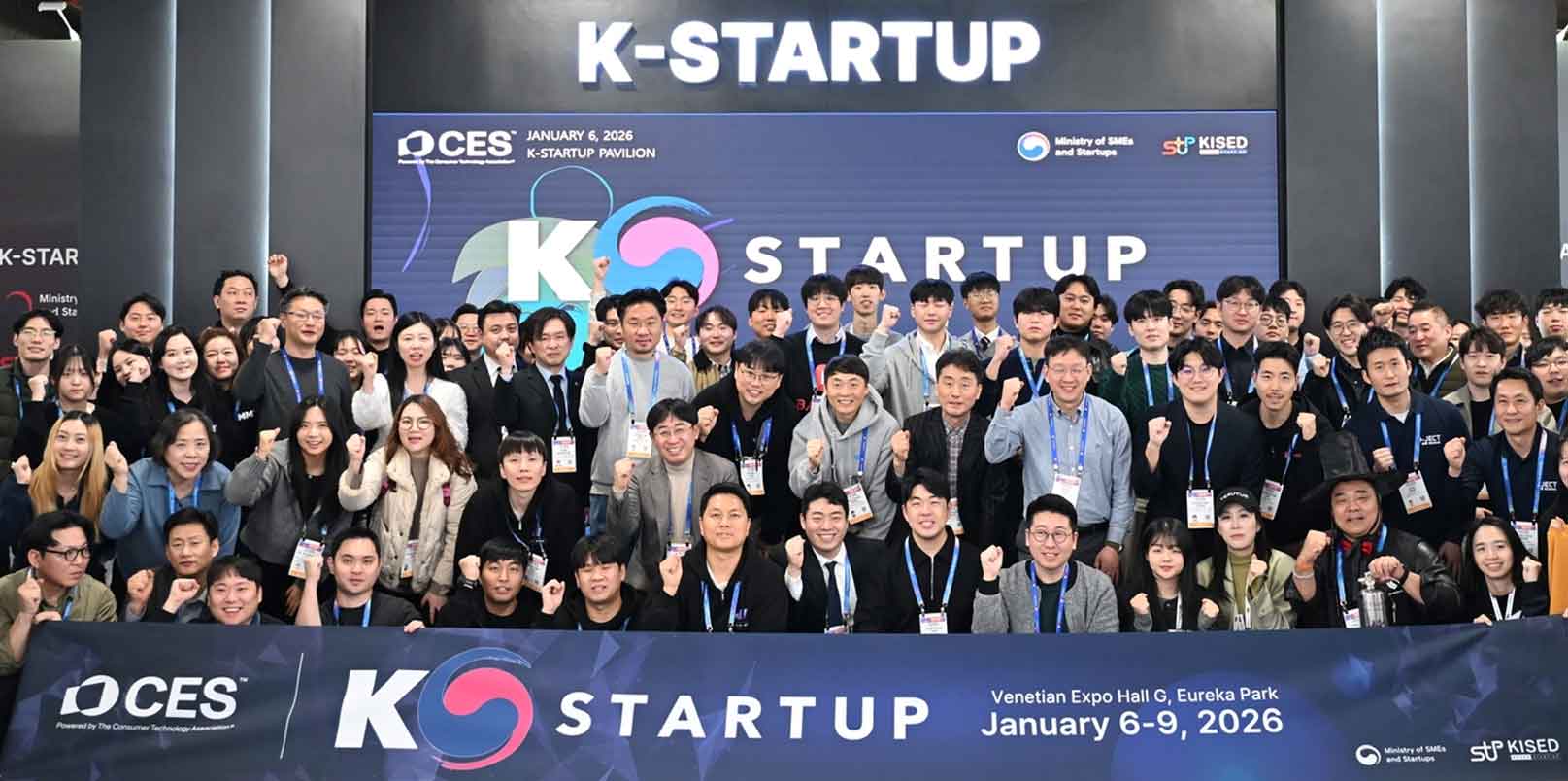The 3rd Digital Economy Forum (DEF2020) hosted by the Ministry of Economy and Finance, South Korea, was successfully held virtually on September 11. Korean startups, global experts, and organizations in digital businesses shared experiences and discussed the digital economy’s future.
DEF is an annual global forum that focuses on discussing the future of the Digital Economy. Since 2018, DEF has been partnering with expert opinion leaders from both inside and outside of Korea to expand awareness and share knowledge on the digital economy globally. In the unprecedented COVID-19 pandemic situation, DEF2020 was a live broadcast from 9:30 to 17:00 (KST).
In its 3rd edition this year, DEF was held under the theme of “POST-CORONA DIGITAL ECONOMY – Accelerating Digital Transformation for Genuine Innovation.” The platform explored the current changes and foreseeable future for the digital economy, focusing on Post-Corona Digital Transformation & Policy, Entertainment & New Media, Work & Job, and Healthcare. There were four sessions, two keynote speeches, and a special session.
The Opening
The event was opened by Namki Hong, Deputy Prime Minister & Minister of Economy and Finance, and Seunggun Lee, Chairman, Korea Startup Forum, and CEO of Korean unicorn startup Viva Republica.
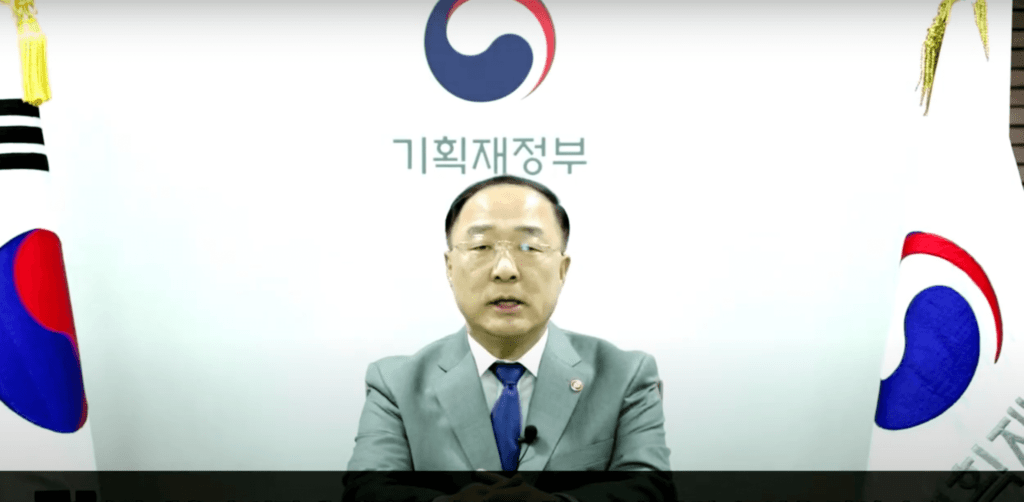
“The COVID-19 pandemic across the world can also work as a historical chance to advance digital innovation depending on our responses. DEF can as a valuable platform for it,” said Namki Hong in his opening address.
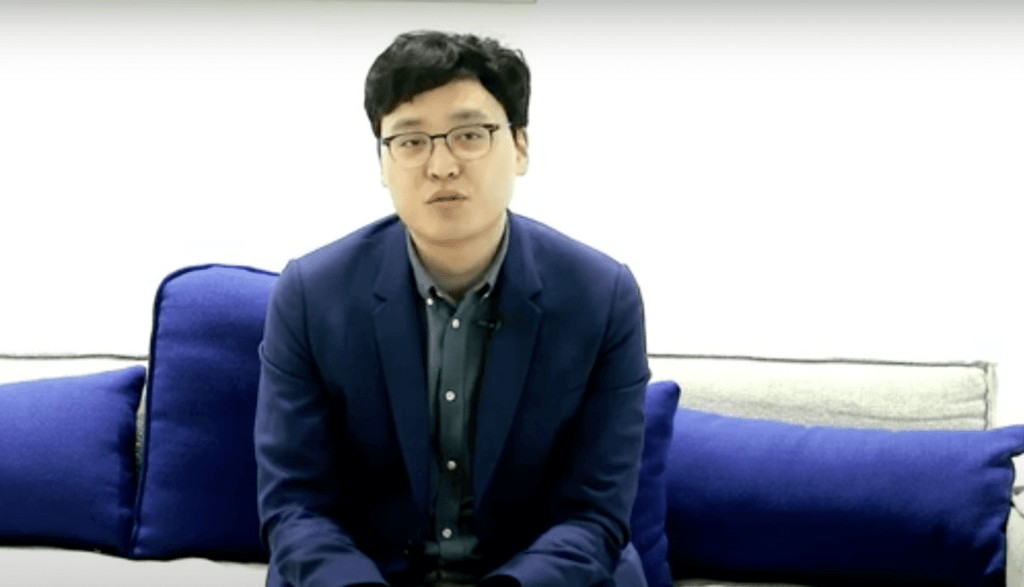
Seunggun Lee explained the roadmap of the event and the sessions to follow. “To prepare for an innovative future, we will have to prepare for a digital economy,” Lee said.
Keynote speech: Meta-Trends- The future is faster than you think
The first keynote speaker Peter Diamandis, the X-Prize Foundation founder, spoke under the topic of “Meta-Trends- The future is faster than you think.” Diamandis joined the forum from the USA. He covered the topic of the trends in digital space for the future of the world, covering topics like 5G, DNA editing tools, Artificial Intelligence, and Elon Musk’s famous future project of ‘brain chips.’

“I truly believe that the world’s biggest problems are the biggest business opportunities. Entrepreneurs today are looking to solve these challenges and these problems,” Diamandis said. The 30-minute session was followed by a Q&A session with the keynote speaker, where the viewers were invited to participate.
The First Session: Digital transformation & policy
The speakers for the session were Sungjin Choi, the Executive Director of the Korea Startup Forum, Taesik Yoon, Director for Policy Coordination, Ministry of Economy and Finance, Heejae Ahn, Partner at Bain & Company Korea Inc., Arvind Gupta, Co-Founder of Digital India Foundation and Global Future Council Member, World Economic Forum and Christos Makridis, Digital Fellow from MIT Sloan School of Management and Senior Advisor at the National AI Institute (US).
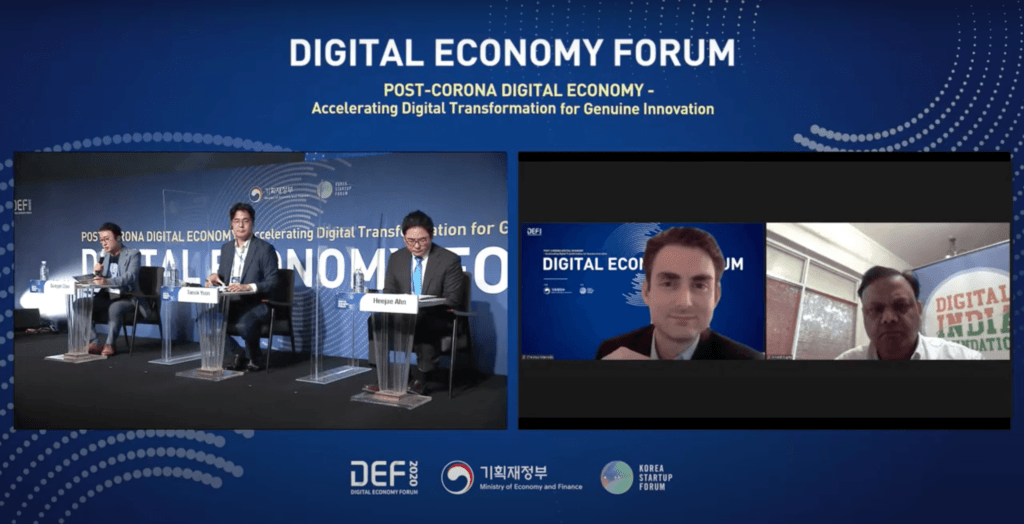
The hour-long session delved into how governments can boost digital transformation through various policies and support the system. It examined the role of government and businesses in dealing with critical issues and challenges like protecting digital rights and privacy for citizens in the fast-growing digital economy.
“Technology has a downside but also gives an opportunity for personal growth and growth as a civilization. And it is really up to all of us, particularly entrepreneurs, to show people there is a better way forward,” said Christos Makridis. Taesik Yoon explored the subject of how government and corporates can help small and traditional businesses go for digital transformation, and Arvind Gupta shared experiences of digital transformation in India and the world.
The Second Session: Entertainment & Media
The session talked about the entertainment & media industry’s future as it has been one of the hardest-hit industries by COVID-19. With theatres shut, concerts, live performances canceled, the consumption of digital entertainment has multiplied. The session had speakers from notable Korean startups – Insoon Kim, Managing Director of The Miilk Korea, Steve Lee, CEO of AmazeVR, Jaekwon Son, CEO of The Miilk, and Jinha Lee CPO & Co-Founder of SPATIAL.
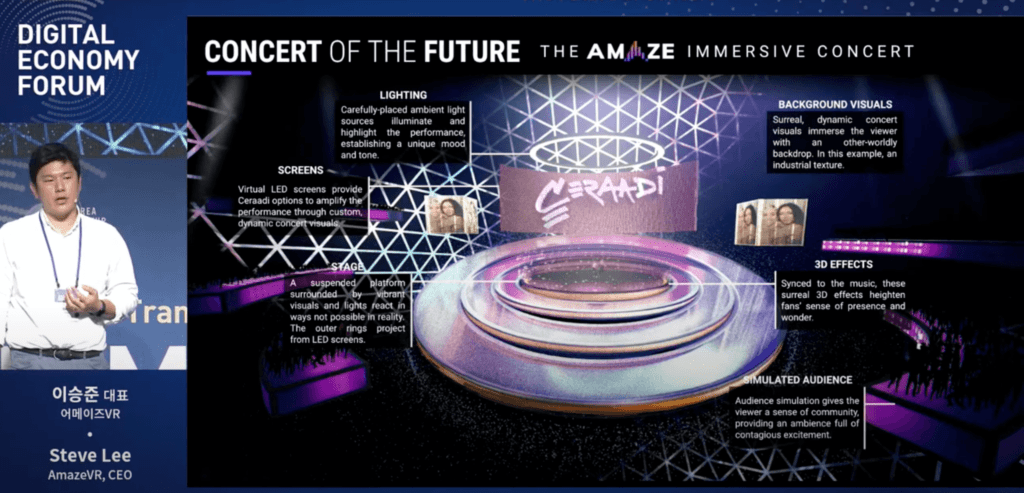
Steve Lee of AmazeVR gave an example of K-Pop sensation BTS’ Bang Bang concert that was held online and got more than 756,000 paid viewers for a price of $20 per ticket. Lee talked about how Virtual Reality(VR) can change the way concerts in the future are held – with VR stage, VR performances, etc.
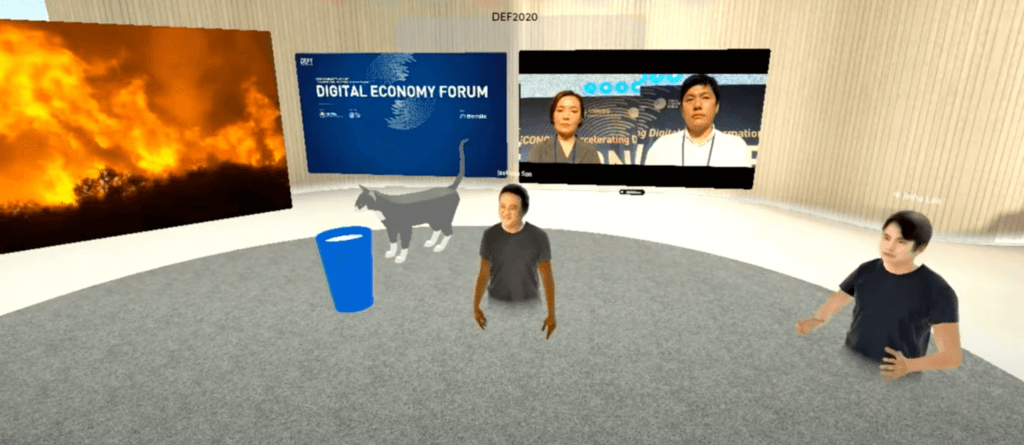
The team of The Miilk and Jinha Lee of SPATIAL came up with an interesting presentation through a VR setup. They talked about the future of streaming and experiencing VR/AR by simply creating virtual scenes. It was one of the most exciting part of the session as it showed the viewers the ability to control the digital surroundings.
Special Session: Rising Startups Use Cases in The Pandemic
The special session introduced some of the rising Korean startups and global startups that are leading innovation and changes in the digital economy. The startups and their representatives that participated & shared the work of their companies were: Kihwan
- Kim, CEO of Medihere – a digital healthcare platform providing remote treatment services,
- Sang Yeol Jeon, CEO of Nowbusking Company that offers a mobile application for real-time wait management services,
- Brandon B, Suh, CEO of Lunit Inc. offering AI-powered solutions for cancer diagnostics and therapeutics,
- D.K. Donghwan Kim CEO, of 42MARU which has developed a Q & A system using deep learning engines
- Hyojin Lee, CEO of 8PERCENT, a P2P lending-borrowing digital platform.
Second Keynote speech: COVID-19 and Digitally Induced Structural Change
The DEF’s second keynote speech was given by Andrew Wyckoff, Director of Science, Technology, and Innovation at OECD. He covered various topics under the digital economy umbrella-like clouding, entertainment, impact on jobs, policy implications, COVID-19 impact, etc.
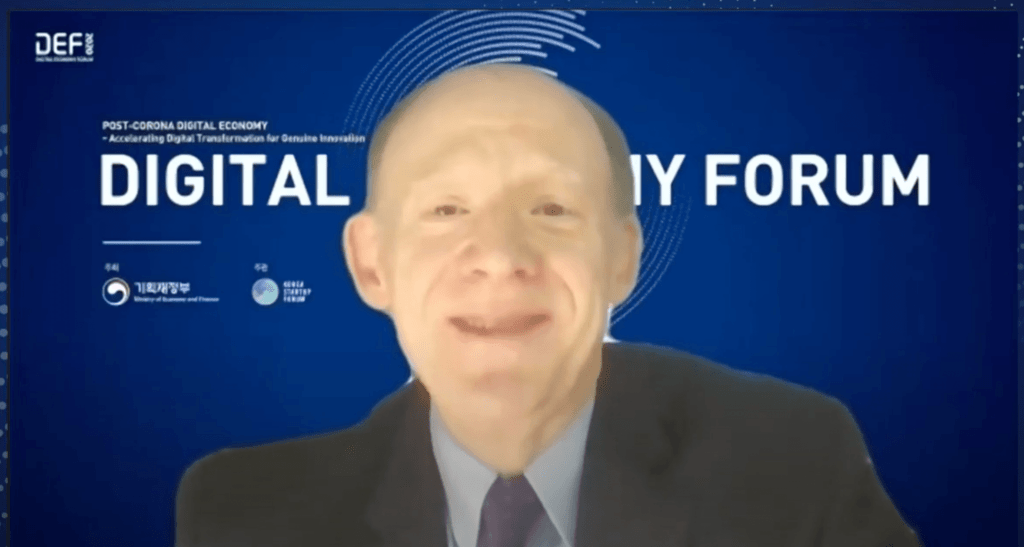
“In these new challenges, startups that innovate can keep the economy competing and markets dynamic. These firms are also a source of new jobs,” Wyckoff explained. “Covid has accelerated aspects of digital transformation. I think some new modes of working and learning may persist and may change how we see things, but it may not be a sea-change that some predict,” he added. A Q&A session was followed by the keynote speech, where viewers directed their questions to Andrew Wyckoff.
Third session: Work & Job
With pandemic affecting millions of jobs worldwide, this session focused on future work opportunities and scope. The session discussed how to accelerate the transformation of institutions, organizations, and human skills to keep up with digital innovation’s quickening pace.
Veikko Vyrynen, Vice President of Aalotes moderated the session. It was participated by Joseph Kim, Head of Robotics Business for Korean unicorn startup Woowa Brothers Corp., Petri Myllymaki, Vice Director of the Finnish Center of Artificial Intelligence, Vesa Perala, CEO of Claned, an online learning program and D.K. Donghwan Kim, CEO of 42MARU. “We now work remotely mostly and the gig economy has other dimensions when the work is not measured as per time you spend but according to results you produce,” said Petri Myllymaki when talking about how COVID-19 has transformed workspace.
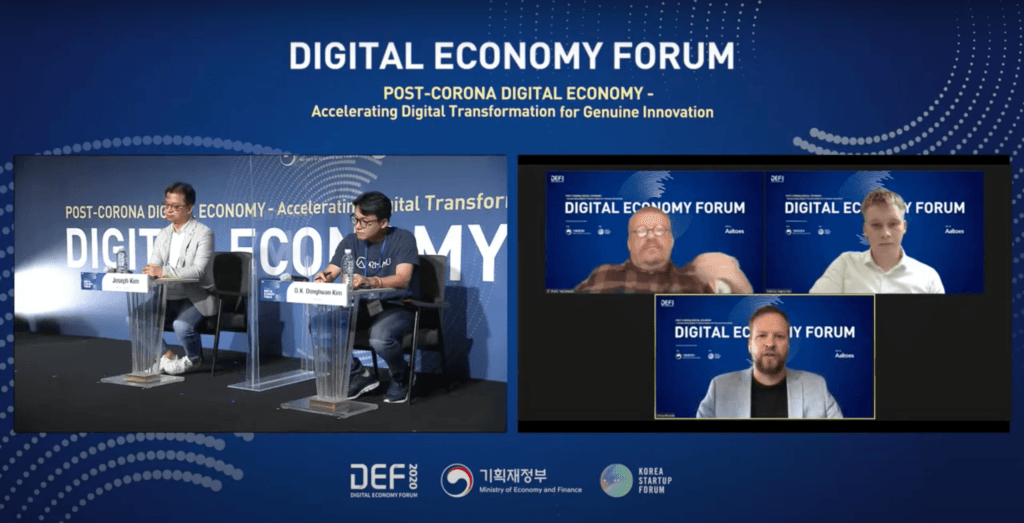
“The future is uncertain and work will be quite different now. It will be more creative in nature,” said D.K. Donghwan Kim. “We definitely need to move towards creating knowledge together, addressing skills we need, not on a substance level, but more on skill level. Basically teaching people, learn how to learn,” said Vesa Perala.
“Twenty years ago there were not those jobs which are there today for eg, the web and online players. In my opinion, for new jobs now, we need time for preparation. Many companies, even in manufacturing or agriculture, have now been forced to digital transformation and this kind of trend will be accelerated in future,” said Joseph Kim of Woowa brothers.
Fourth Session: Healthcare
The fourth and last session was about future of healthcare in the post-pandemic world. The session panel discusses how innovation in the healthcare industry can be achieved and how to implement relevant regulations and policies to keep up with disruptive innovations. The panelists for the session were Sameer Pujari Co-Founder
Of Be He@lthy Be Mobile Initiative of WHO & who moderated the session, Naomi Lee
Senior Executive Editor of The Lancet journal, Yong Gi Jung, Vice Director of Medical AI Research Center of Samsung Medical Center and CEO of Lunit Inc. Brandon B Suh.
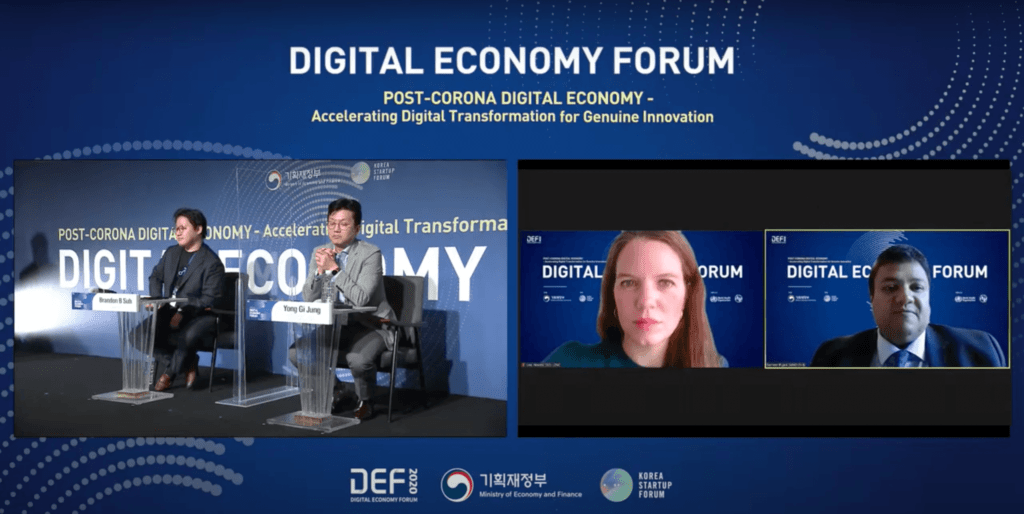
Brandon B Suh., who appeared again on the forum said, “Because of pandemic there is more activity in tele-medicine or tertiary clinics, which means there can be possibility of shortage of specialists for diagnosis. So in that terms AI could be very useful in assisting.” “We have the opportunity now to build a future with equal balance and that no one should be left behind,” said Naomi Lee of The Lancet when talking about how digital transformation can help get equal distribution of healthcare facilities.
Yong Gi Jung talked about how we can avoid malpractices and create more trust towards AI developed medical assistance. The DEF 2020 forum ended on a high-note about supporting fair practices for medical system digital transformation for a better healthcare for the world. The DEF2020 sessions are available online.


